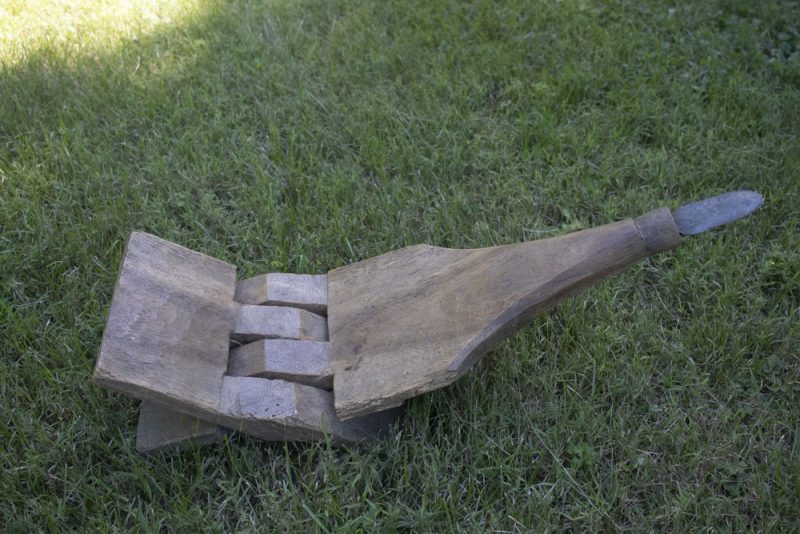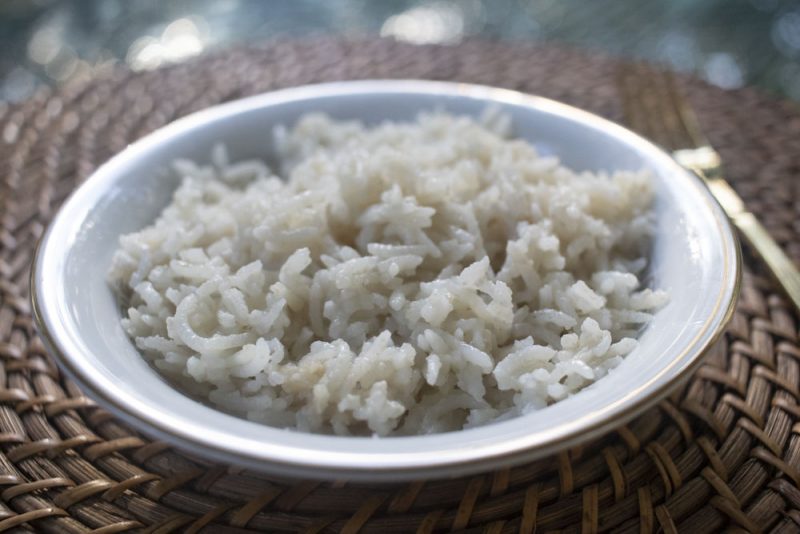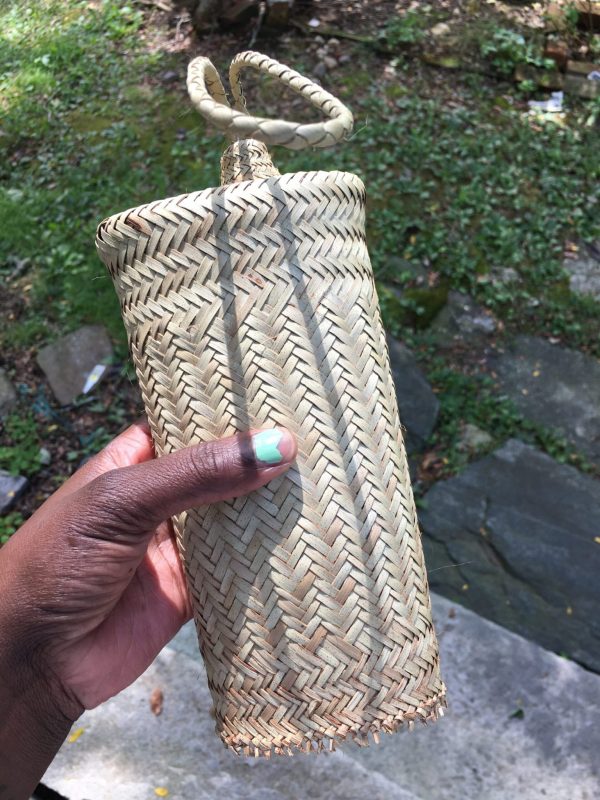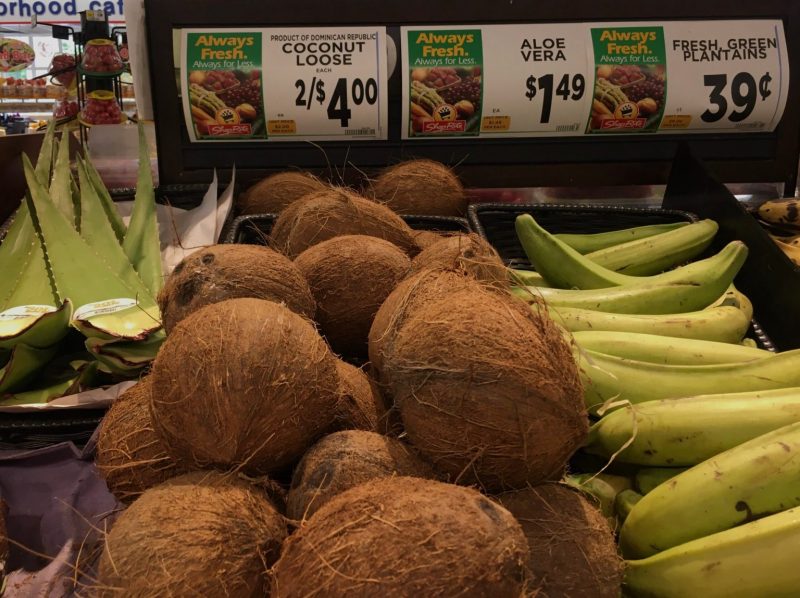
The mbuzi is a rather common sight along the coconut laden Indian ocean coast. It is how coconuts are processed for domestic use. Ask around, and no one seems to know its history. Where did it come from? why does it share its name with a goat? If I were to speculate as to a place of origin, I’d point to Indonesia for the general structure, but to the Arabs for the interlocking portion which seems to resemble a Quran holder.
To use a mbuzi, one simply sits in the interlocking part, your weight then is used to stabilize the tool as you grate away, giving yourself time to gather your thoughts because it is not a fast process. (See video for demonstration).
Coconuts are becoming easier to find here on the East coast (of the US), an import from the Dominican Republic mostly. It is not uncommon to see a 2 for $4 sale at my local grocery store. When picking coconuts that have already been dehusked, shake them to ensure that it has sufficient liquid. The water produced from a mature coconut is not the best tasting and can be reserved to make a deep conditioning hair mask.
The other tool involved is called a kifumbu. It is woven from reeds and softens over time with use. It acts as a sieve as is an ingenious method to extract coconut milk. The coconut shavings are inserted into the kifumbu, followed by a lot of squeezing. You want to apply pressure without adding any water at first. The coconut milk yielded is called tui la kwanza. Afterward, you can add a little warm water at a time until you have an end product that you are satisfied with. Thankfully, you need not waste the remnants of the coconut shavings – these can be dehydrated to make coconut “flakes” that can be used in porridge, baked goods, and much more. Though devoid of the fat, the flakes are still tasty (assuming you got a good coconut).
Wali Wa Nazi Recipe

yield: 2 SERVINGS
Wali wa nazi is a delightful dish that pairs well with curries, stews, and both vegetarian and non- vegetarian main dishes. Wali in Swahili means rice, whereas mchele refers to uncooked rice. Nazi is coconut, therefore wali wa nazi is rice cooked in coconut milk.
Ingredients:
- homemade coconut milk 1.5 cups or store bought can of coconut milk (13.5 ounces)
- 1 cup of water
- 1 cup of washed basmati rice
- 1 -2 teaspoons of coconut oil (optional)
- Salt to taste (optional)
Instructions:
- The process is quite simple, the cup of washed basmati rice goes into a saucepan. You can choose to cook it a little first (as though you were toasting it if it were dry) or you can just go ahead and add the water, coconut milk, and basmati rice.
- Give it a good stir and cook over medium heat
- Keep a watchful eye so that it doesn’t burn, lowering the heat as necessary. If you must stir to ensure no sticking occurs, use a fork, and be gentle.
- Cook time will depend on the kind of rice you have but it should ideally be a long-grain variety.
- There are variations that include cardamom, which must be first bloomed in a bit of oil before the rice is added.

This article originally appeared on Modern African Table and has been republished with the permission of the author. Find Neema at Modern African Table


